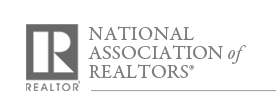Posted by Jason Wheeler | Subscribe
What is an Impound Account?
An account maintained by mortgage companies to collect amounts such as hazard insurance, property taxes, private mortgage insurance and other required payments from the mortgage holders; these payments are necessary to keep the home but are not technically part of the mortgage. Impound accounts are often required of borrowers who put down less than 20%, but are usually optional in other cases. The purpose of the impound account is to protect the lender. Because low down-payment borrowers are considered high risk, the impound account assures the lender that the borrower will not lose the home because of liens or loss, as the lender pays insurance, taxes, etc. from the impound account when they are due.
Investopedia explains Impound
Though the impound account is designed to protect the lender, it can also help the mortgage holder. By paying for these big-ticket housing expenses gradually throughout the year, the borrower avoids the sticker shock of paying large bills once or twice a year, and is assured that the money to pay those bills will be there when they need it. However, if the mortgage company does not pay these bills when they are due, the borrower will be held responsible, so borrowers should keep an eye out to make sure their mortgage companies are fulfilling their end of the bargain.
How It Works according to Investopedia
An impound account (also called an escrow account, depending on where you live) is simply an account maintained by the mortgage company to collect insurance and tax payments that are necessary for you to keep your home, but are not technically part of the mortgage. The lender divides the annual cost of each type of insurance into a monthly amount and adds it to your mortgage payment.
Required Mortgage Impounds
Since low down payment borrowers are considered to be a higher due to their lower personal stake in the property, lenders want some level of assurance that the state will not seize the property because of non-payment of property taxes, and that borrowers won’t be without homeowners insurance in the event that the property is damaged. An impound account ensures that the only person who will become owner of the house in case of default will be the lender.
Connect Online | Facebook | Twitter
Until Next time Here is to your success! Jason Wheeler







Thanks for the information. Quite useful.